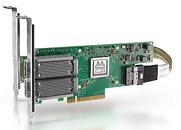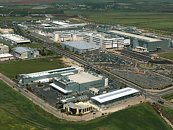SaxonQ & Quantum Machines Enabled First-ever Live Demo of Application on Mobile Quantum Platform
SaxonQ, developer of the first mobile quantum computer, and Quantum Machines, the leading provider of advanced hybrid quantum-classical control solutions, announced today a milestone demonstration of real-time quantum computing on SaxonQ's mobile quantum computer at Hannover Messe 2025. The live demonstrations included a quantum chemical calculation of H₂ energy levels and basic real-time image recognition, marking the first time anyone has shown such applications running on a portable room-temperature quantum computer publicly, demonstrate the potential of mobile quantum computing outside laboratory conditions.
"Developing a mobile quantum computer that runs in real-world environments—without cryogenic cooling and powered by a simple wall plug—is a challenge that requires the best available control technology. Quantum Machines provides exactly that. This successful demonstration proves that we can run reliable quantum operations on-site. It's an exciting step toward bringing quantum computing to industrial applications," says Dr. Frank Schlichting, CEO of SaxonQ.
"Developing a mobile quantum computer that runs in real-world environments—without cryogenic cooling and powered by a simple wall plug—is a challenge that requires the best available control technology. Quantum Machines provides exactly that. This successful demonstration proves that we can run reliable quantum operations on-site. It's an exciting step toward bringing quantum computing to industrial applications," says Dr. Frank Schlichting, CEO of SaxonQ.















































